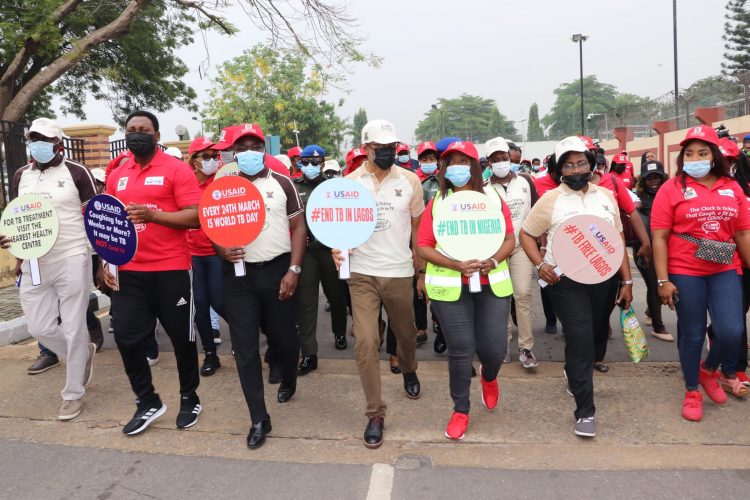By Tina Amanda
There is an urgent need in our healthcare system to fight against tuberculosis (TB).
Tuberculosis remains one of the deadliest infectious diseases globally, disproportionately affecting vulnerable populations. Despite significant progress in medical science, the battle against TB is far from over. Effective TB care and prevention require a multi-faceted approach, encompassing early diagnosis, consistent treatment, public awareness, and robust healthcare infrastructure.
Governments play a crucial role in this fight. Adequate funding and policy support are essential for sustaining TB programs, particularly in resource-limited settings. Health ministries must prioritize TB in their agendas, ensuring that healthcare facilities are equipped to diagnose and treat TB promptly. Moreover, integrating TB services into primary healthcare can enhance accessibility and efficiency.
Corporate bodies and private sector stakeholders also have a vital part to play. By investing in TB research and development, these entities can drive innovation in diagnostics, treatments, and vaccines. Additionally, corporate social responsibility initiatives can support public health campaigns and provide resources for community-based TB programs. Collaboration between the public and private sectors can amplify the impact of these efforts.
Individuals and community leaders must engage in the fight against TB. Public awareness campaigns are crucial for educating people about TB symptoms, transmission, and the importance of completing treatment.
Stigma and misinformation surrounding TB often hinder timely diagnosis and treatment. Community outreach programs can help dispel myths and encourage individuals to seek care early.
A call to action serves as a reminder that the fight against tuberculosis is a collective responsibility. Governments, corporations, and individuals must unite to support TB care initiatives. The health and well-being of our communities depend on a coordinated and sustained effort to eradicate this disease.
Apparently, (GTB Report 2022) shows that Nigeria is still one of the countries with the highest burden of TB and 6th in the world.
2022 Data obtained from the Strengthening Civic Advocacy and Local Engagement (SCALE) project (SCALE) revealed as follows:
Estimated burden of TB- 479,000
Community.
Contribution to case finding – 43% 2022 DATA
Case notification for 2022 – 285, 56 1.
PPM facilities contribution to case finding – 20%.
Missed cases – 40%
Funding gap- 70% (Only 30% of activities are funded).
Deaths -97,900 shortage of TB drugs and consumables.
One of the major challenges in combating TB is the lack of sufficient funding. The World Health Organization (WHO) and various health organizations have frequently highlighted that the funding gaps hinder efforts:
- Research and Development: Innovation in diagnostics, vaccines, and treatments is crucial. Insufficient funding limits progress in developing new tools to effectively combat TB.
- Health System Strengthening: Adequate funding is needed to ensure robust health systems that can detect, treat, and manage TB cases efficiently. This includes training healthcare workers, improving laboratory facilities, and ensuring the availability of necessary medical supplies.
- Public Health Campaigns: Effective public awareness campaigns are essential for educating communities about TB prevention, symptoms, and the importance of seeking treatment. Limited funding restricts the reach and impact of these campaigns.
- Access to Treatment: Ensuring that all patients, especially in low-income regions, have access to affordable and effective TB treatment is critical. Funding shortages often result in inadequate access to medications and healthcare services.
- Surveillance and Data Collection: Accurate data collection and surveillance systems are vital for tracking the spread of TB and assessing the effectiveness of control measures. Lack of funding can lead to gaps in data, making it challenging to allocate resources efficiently and measure progress.
Addressing the funding gaps requires a concerted effort from governments, international organizations, private sectors, and philanthropic entities to invest in comprehensive TB control programs. Increased funding would enhance global capacity to prevent, diagnose, and treat TB, ultimately reducing the burden of this disease.
Domestic funding for TB
- Nigeria’s government set a 50% target for domestic funding for TB by 2025 against a baseline of 8 percent in 2019.
- Currently, we are below 20% as of the end of 2023, showing we are far from target with only one year left.
- The National Strategic Plan for Tuberculosis Control (2020–2025) identifies the factors below as some of the root causes of the inadequate government funding of TB services: inadequate budgetary appropriations for TB due to competing priorities e.g., security, education, and other health programs.
MAKE IT POSSIBLE & Non-inclusion of the TB program in the Basic Healthcare Provision Fund (BHCPF) and National Health Insurance (NHIS).
Over-dependence on foreign donors coupled with shrinking donor resources.
Sub-optimal participation of the private sector in domestic resource mobilization for TB response.
Low TB awareness across project States in Nigeria.
Let us reflect on the importance of supporting tuberculosis care and consider how we can contribute to this vital cause. By working together, we can make strides toward a TB-free world, ensuring healthier futures for generations to come.




